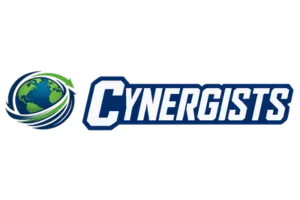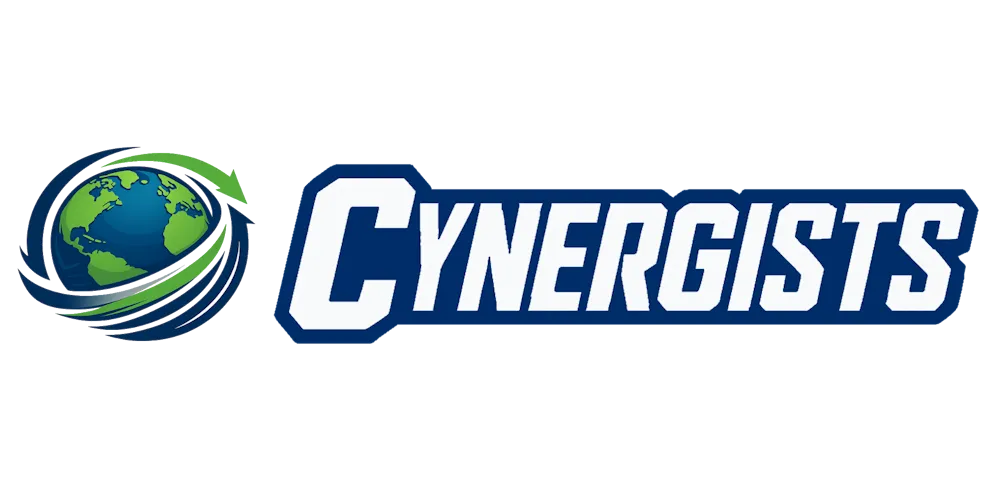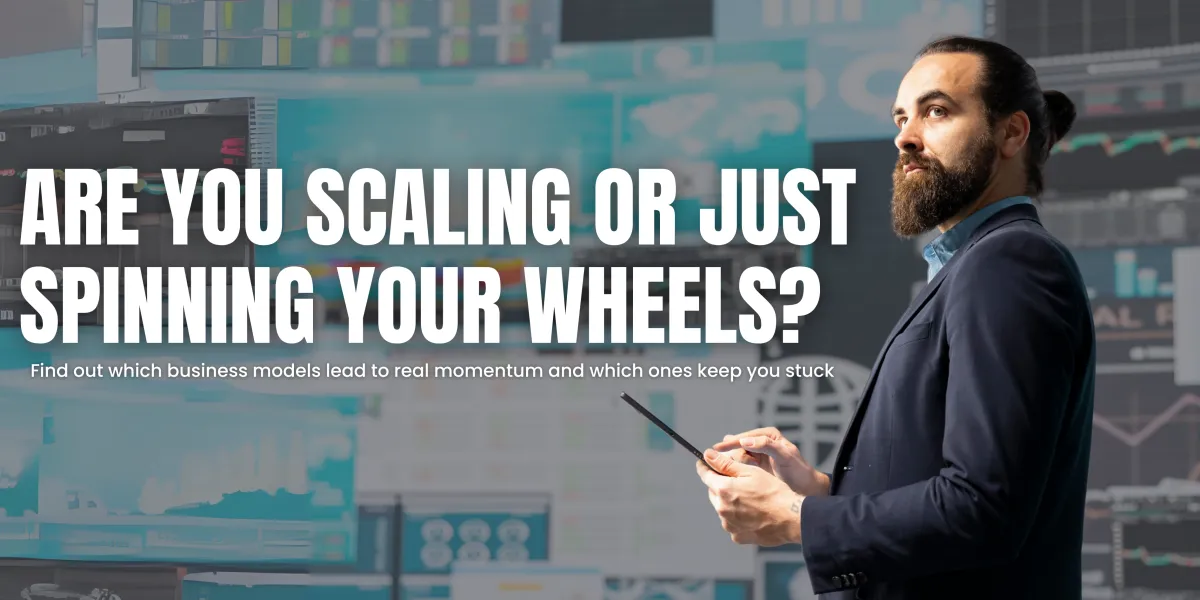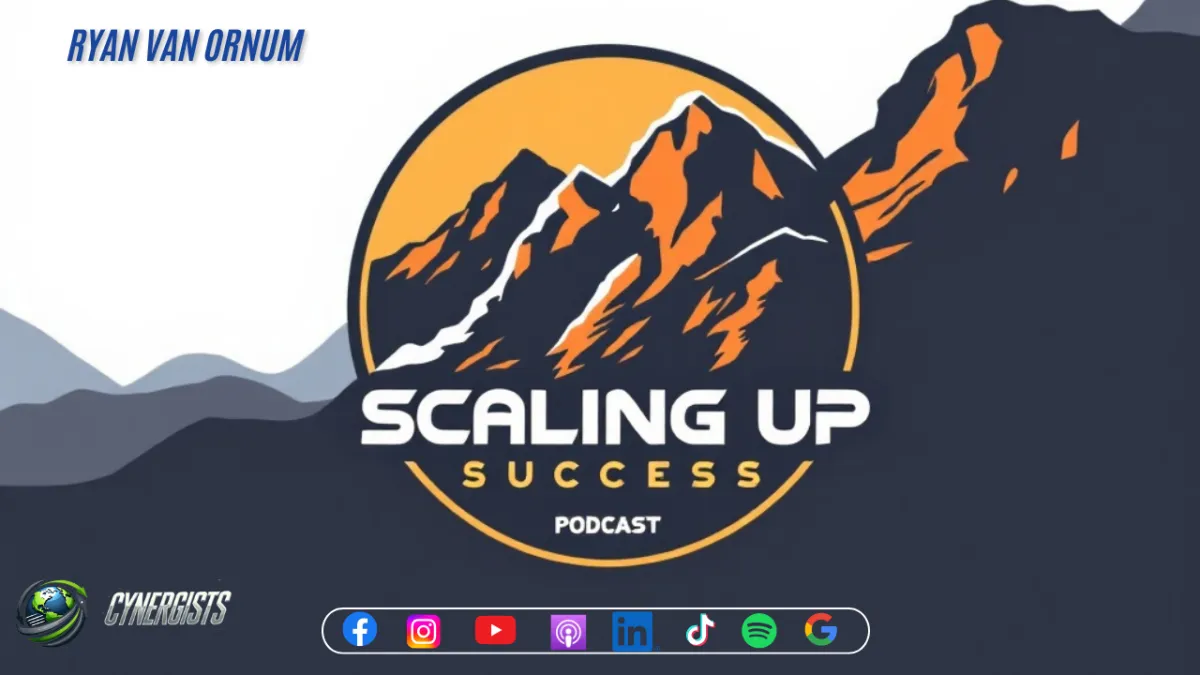
Suit Up with the Cynergists Blog:
Built for the Brave, the Bold, and the Business-Minded

Suit Up with the Cynergists Blog:Built for the Brave, the Bold, and the Business-Minded
Featured Posts
At Cynergists, we empower businesses with highly skilled virtual assistants who handle routine tasks, so you can focus on growth. Our blog offers expert tips, actionable strategies, and success stories to help you streamline operations and save time.

The Future of Sales Teams: How Automation is Reshaping the Industry

Lead Generation in 2025: Proven Strategies to Fill Your Pipeline

Top 8 Ways to Leverage Your CPA Business Utilizing Cynergists
Featured Posts
At Cynergists, we empower businesses with highly skilled virtual assistants who handle routine tasks, so you can focus on growth. Our blog offers expert tips, actionable strategies, and success stories to help you streamline operations and save time.

The Future of Sales Teams: How Automation is Reshaping the Industry

Lead Generation in 2025: Proven Strategies to Fill Your Pipeline

Top 8 Ways to Leverage Your CPA Business Utilizing Cynergists

5 Business Models That Scale (and 3 That Don’t)
5 Business Models That Scale (and 3 That Don’t)
In a world increasingly driven by agility and automation, choosing the right business model isn’t just important, it’s everything. You can have the best product, a stellar team, and even a decent market presence, but if your business model can't scale, your growth will eventually stall.
So, what makes a business model scalable?
It's the ability to multiply output or revenue without a linear increase in cost, effort, or resources. Not all models are created equal, and understanding the difference could be the line between being stuck and becoming unstoppable.
Let’s explore five business models that are built to scale, and three that are often best left behind unless radically reinvented.
1. SaaS (Software as a Service): The Scalable Standard
Among all modern business models, SaaS has emerged as one of the most scalable. With relatively low marginal costs and the ability to serve unlimited users via the cloud, SaaS companies can grow rapidly without needing to expand physical infrastructure.
Once your software is built and deployed, onboarding new customers becomes a matter of automation. This makes customer acquisition, retention, and upselling far more efficient. With clear SOPs (Standard Operating Procedures) and proper onboarding flows, SaaS becomes a self-sustaining system of value.
The secret to scaling a SaaS product lies in a seamless product experience and consistent updates. Think Slack, HubSpot, or Notion, tools that solved a specific pain point and then expanded into ecosystems of features and integrations. Add a robust marketing automation system, and your SaaS startup becomes a flywheel.
Whether you’re a solo founder or an agile team looking to scale, this model thrives on simplicity and replicability, ideal for modern entrepreneurs leaning into business automation and digital-first thinking.
2. Digital Products and Online Courses: Low Overhead, High Return
There’s a reason why so many solopreneurs are turning to digital products and info-products. Once a product, be it an eBook, online course, digital planner, or tutorial series, is created, it can be sold infinitely with almost no additional cost per unit.
Platforms like Teachable, Kajabi, and Gumroad allow creators to reach global audiences overnight. With a proper content strategy and SEO-optimized landing pages, your digital storefront can attract, nurture, and convert leads around the clock.
The real magic happens when you incorporate scalable systems like evergreen funnels and email automations. Now, instead of trading time for money, you’re earning while you sleep.
This model also blends seamlessly with community building, an often underutilized asset in scale. If your audience trusts you, they will buy not just your first product but everything that follows.
Ryan Van Ornum (RVO), a strong advocate for streamlined growth, often emphasizes this kind of predictable, repeatable revenue on his Scaling Up Success podcast, a goldmine for entrepreneurs serious about building smarter, not harder.
3. Marketplace Platforms: Network Effects in Action
The beauty of marketplace models like Airbnb, Etsy, or Upwork is their ability to scale through user participation. You provide the platform, and your users provide the value, whether it's listings, products, or services.
Network effects kick in as more users join, increasing the value for everyone involved. If you can attract both supply and demand to your platform and maintain quality assurance through smart automation, your business grows exponentially.
Of course, building trust and safety mechanisms is key. Scaling isn’t just about volume, it’s about sustainable, quality interactions. With the right data-driven strategies and feedback loops in place, marketplaces can evolve from small communities into global ecosystems.
If you're exploring how to scale a business that doesn’t rely solely on your time, consider the platform route. Just be prepared for upfront investment and a strategic roll-out.
4. Subscription Box Services: Recurring Revenue on Autopilot
What began as a niche novelty has evolved into a powerful model for customer loyalty and monthly recurring revenue. Subscription box services, from grooming kits to niche snacks and fitness apparel, capitalize on convenience, surprise, and customer psychology.
The scalability here lies in predictable cash flow and the opportunity for upsells, cross-sells, and customer lifetime value expansion. When done right, logistics and procurement become smooth, and automation tools handle most customer communication and shipping notifications.
This model also opens doors for community building through unboxings, affiliate programs, and social media features. Brand love and organic word-of-mouth become self-reinforcing engines.
Just ensure your backend systems are robust, your product sourcing consistent, and your marketing automation well-integrated. With that in place, scaling becomes not just possible, but inevitable.
5. Agency with Productized Services: Structured for Scale
Agencies aren’t always scalable, but when you productize your service offering, things change. Instead of custom proposals and long pitch meetings, you offer fixed packages at fixed prices, with clearly outlined deliverables and timelines.
This model reduces the variability that typically holds agencies back. You can hire, train, and deploy teams according to clear SOPs. Clients know what they’re getting, and delivery becomes a repeatable process.
This is where companies like Cynergists shine. By offering structured marketing services grounded in clear strategy, Cynergists helps growth-minded businesses avoid bottlenecks while scaling their outreach and performance.
If you're looking to build an agency that doesn’t burn you out, consider productizing, and integrating scalable systems like CRM automations, remote project dashboards, and templates for every process.
Not All That Glitters Scales: 3 Models That Often Don’t
1. Freelancing Without Systems
Freelancing can be freeing, but it’s hard to scale if you’re doing everything manually. If your time is your only commodity, growth eventually hits a ceiling. The absence of business automation and standard processes often makes it difficult to expand beyond a solo act.
2. Traditional Brick-and-Mortar Retail
While not impossible to scale, traditional retail has high overhead costs, complex logistics, and limited reach. Unless it’s supported by a strong eCommerce counterpart or franchise-ready systems, it struggles to keep pace with digital-native brands.
3. Custom-Tailored Service Businesses
Businesses offering 100% custom solutions, without structured packages, find scaling tough. Every client requires a new scope, which means more admin, more time, and higher labor costs. Unless standardized, these models trade flexibility for scalability.
Build It to Scale
Scaling is not about doing more, it’s about doing smarter. Whether you're a startup founder, creative entrepreneur, or digital agency owner, the models you choose shape your potential.
If you're still navigating the path to scalability, take a moment to explore Cynergists for strategic marketing services designed to eliminate guesswork. And if you're hunting for tools that can accelerate your growth, from templates to automation resources, Cynergists.shop is a curated hub built for builders like you.
As RVO (Ryan Van Ornum) would say: “You don’t scale by working more hours, you scale by working the right model.”
Choose well. Scale wisely. Grow intentionally.

5 Business Models That Scale (and 3 That Don’t)
5 Business Models That Scale (and 3 That Don’t)
In a world increasingly driven by agility and automation, choosing the right business model isn’t just important, it’s everything. You can have the best product, a stellar team, and even a decent market presence, but if your business model can't scale, your growth will eventually stall.
So, what makes a business model scalable?
It's the ability to multiply output or revenue without a linear increase in cost, effort, or resources. Not all models are created equal, and understanding the difference could be the line between being stuck and becoming unstoppable.
Let’s explore five business models that are built to scale, and three that are often best left behind unless radically reinvented.
1. SaaS (Software as a Service): The Scalable Standard
Among all modern business models, SaaS has emerged as one of the most scalable. With relatively low marginal costs and the ability to serve unlimited users via the cloud, SaaS companies can grow rapidly without needing to expand physical infrastructure.
Once your software is built and deployed, onboarding new customers becomes a matter of automation. This makes customer acquisition, retention, and upselling far more efficient. With clear SOPs (Standard Operating Procedures) and proper onboarding flows, SaaS becomes a self-sustaining system of value.
The secret to scaling a SaaS product lies in a seamless product experience and consistent updates. Think Slack, HubSpot, or Notion, tools that solved a specific pain point and then expanded into ecosystems of features and integrations. Add a robust marketing automation system, and your SaaS startup becomes a flywheel.
Whether you’re a solo founder or an agile team looking to scale, this model thrives on simplicity and replicability, ideal for modern entrepreneurs leaning into business automation and digital-first thinking.
2. Digital Products and Online Courses: Low Overhead, High Return
There’s a reason why so many solopreneurs are turning to digital products and info-products. Once a product, be it an eBook, online course, digital planner, or tutorial series, is created, it can be sold infinitely with almost no additional cost per unit.
Platforms like Teachable, Kajabi, and Gumroad allow creators to reach global audiences overnight. With a proper content strategy and SEO-optimized landing pages, your digital storefront can attract, nurture, and convert leads around the clock.
The real magic happens when you incorporate scalable systems like evergreen funnels and email automations. Now, instead of trading time for money, you’re earning while you sleep.
This model also blends seamlessly with community building, an often underutilized asset in scale. If your audience trusts you, they will buy not just your first product but everything that follows.
Ryan Van Ornum (RVO), a strong advocate for streamlined growth, often emphasizes this kind of predictable, repeatable revenue on his Scaling Up Success podcast, a goldmine for entrepreneurs serious about building smarter, not harder.
3. Marketplace Platforms: Network Effects in Action
The beauty of marketplace models like Airbnb, Etsy, or Upwork is their ability to scale through user participation. You provide the platform, and your users provide the value, whether it's listings, products, or services.
Network effects kick in as more users join, increasing the value for everyone involved. If you can attract both supply and demand to your platform and maintain quality assurance through smart automation, your business grows exponentially.
Of course, building trust and safety mechanisms is key. Scaling isn’t just about volume, it’s about sustainable, quality interactions. With the right data-driven strategies and feedback loops in place, marketplaces can evolve from small communities into global ecosystems.
If you're exploring how to scale a business that doesn’t rely solely on your time, consider the platform route. Just be prepared for upfront investment and a strategic roll-out.
4. Subscription Box Services: Recurring Revenue on Autopilot
What began as a niche novelty has evolved into a powerful model for customer loyalty and monthly recurring revenue. Subscription box services, from grooming kits to niche snacks and fitness apparel, capitalize on convenience, surprise, and customer psychology.
The scalability here lies in predictable cash flow and the opportunity for upsells, cross-sells, and customer lifetime value expansion. When done right, logistics and procurement become smooth, and automation tools handle most customer communication and shipping notifications.
This model also opens doors for community building through unboxings, affiliate programs, and social media features. Brand love and organic word-of-mouth become self-reinforcing engines.
Just ensure your backend systems are robust, your product sourcing consistent, and your marketing automation well-integrated. With that in place, scaling becomes not just possible, but inevitable.
5. Agency with Productized Services: Structured for Scale
Agencies aren’t always scalable, but when you productize your service offering, things change. Instead of custom proposals and long pitch meetings, you offer fixed packages at fixed prices, with clearly outlined deliverables and timelines.
This model reduces the variability that typically holds agencies back. You can hire, train, and deploy teams according to clear SOPs. Clients know what they’re getting, and delivery becomes a repeatable process.
This is where companies like Cynergists shine. By offering structured marketing services grounded in clear strategy, Cynergists helps growth-minded businesses avoid bottlenecks while scaling their outreach and performance.
If you're looking to build an agency that doesn’t burn you out, consider productizing, and integrating scalable systems like CRM automations, remote project dashboards, and templates for every process.
Not All That Glitters Scales: 3 Models That Often Don’t
1. Freelancing Without Systems
Freelancing can be freeing, but it’s hard to scale if you’re doing everything manually. If your time is your only commodity, growth eventually hits a ceiling. The absence of business automation and standard processes often makes it difficult to expand beyond a solo act.
2. Traditional Brick-and-Mortar Retail
While not impossible to scale, traditional retail has high overhead costs, complex logistics, and limited reach. Unless it’s supported by a strong eCommerce counterpart or franchise-ready systems, it struggles to keep pace with digital-native brands.
3. Custom-Tailored Service Businesses
Businesses offering 100% custom solutions, without structured packages, find scaling tough. Every client requires a new scope, which means more admin, more time, and higher labor costs. Unless standardized, these models trade flexibility for scalability.
Build It to Scale
Scaling is not about doing more, it’s about doing smarter. Whether you're a startup founder, creative entrepreneur, or digital agency owner, the models you choose shape your potential.
If you're still navigating the path to scalability, take a moment to explore Cynergists for strategic marketing services designed to eliminate guesswork. And if you're hunting for tools that can accelerate your growth, from templates to automation resources, Cynergists.shop is a curated hub built for builders like you.
As RVO (Ryan Van Ornum) would say: “You don’t scale by working more hours, you scale by working the right model.”
Choose well. Scale wisely. Grow intentionally.
Why Follow Our Blog?
Save Time, Boost Efficiency: Discover how virtual assistants can automate tasks and optimize your business.
Smart Scaling Tips: Learn how to scale without the headaches using virtual assistant support.
Tech & Automation Insights: Leverage AI and automation to enhance your business operations.
Real Success Stories: See how our clients have transformed their businesses with our services.
Entrepreneur Tips: Get practical advice for growing your business and managing your team.
Ready to Grow?
Explore Cynergists today and discover how our virtual assistants can help you reclaim time and boost efficiency. Subscribe to our blog for the latest updates, tips, and news!
STAY UP TO DATE, CHECK OUT OUR PODCAST AND FOLLOW US!


233 S 13th St Suite 1130, Lincoln, NE 68508
Copyright 2025. Cynergists. All Rights Reserved.
STAY UP TO DATE, CHECK OUT OUR PODCAST AND FOLLOW US!


Copyright 2025. Cynergists. All Rights Reserved.












